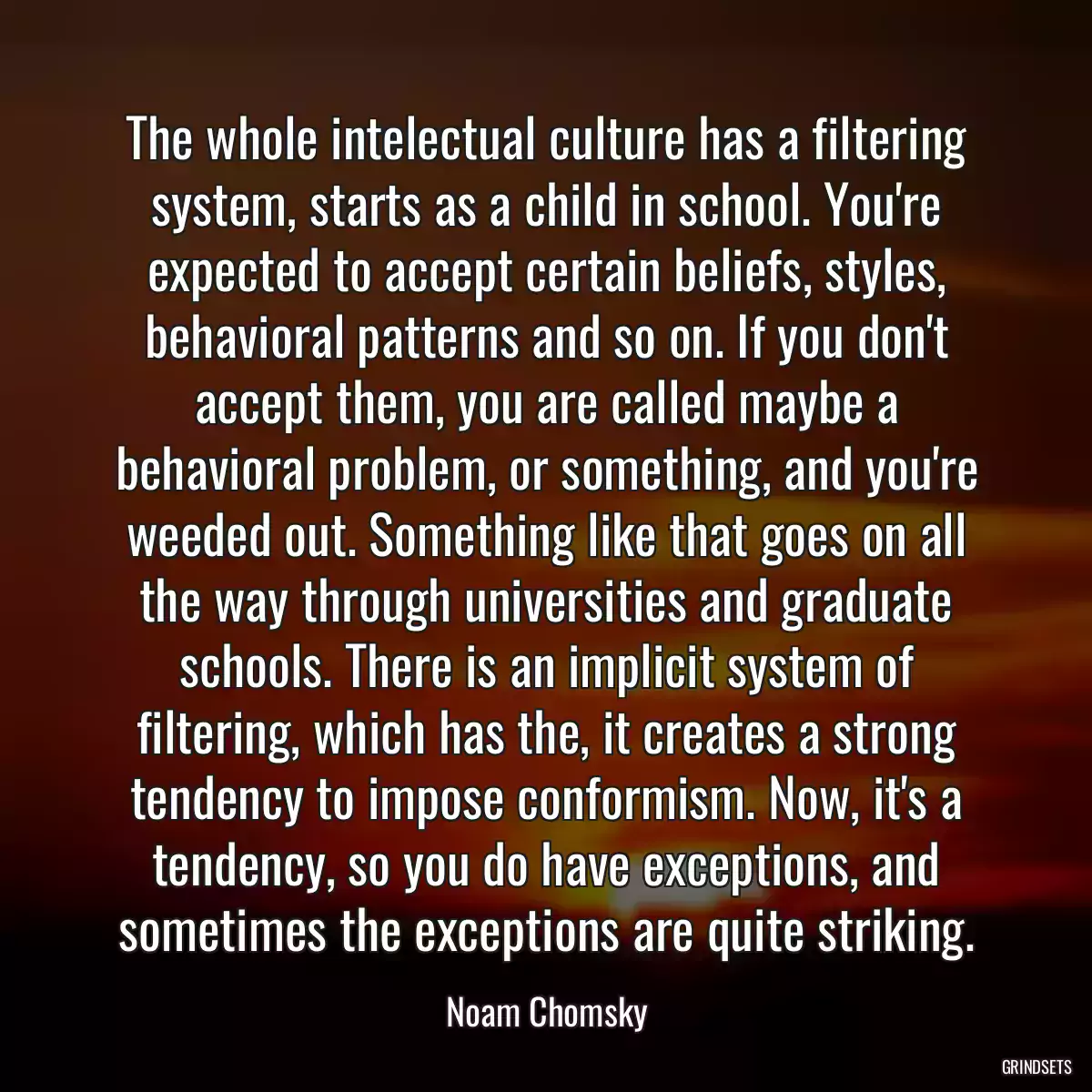
The whole intelectual culture has a filtering system, starts as a child in school. You're expected to accept certain beliefs, styles, behavioral patterns and so on. If you don't accept them, you are called maybe a behavioral problem, or something, and you're weeded out. Something like that goes on all the way through universities and graduate schools. There is an implicit system of filtering, which has the, it creates a strong tendency to impose conformism. Now, it's a tendency, so you do have exceptions, and sometimes the exceptions are quite striking.